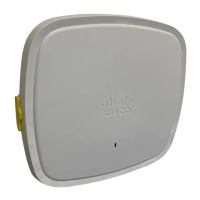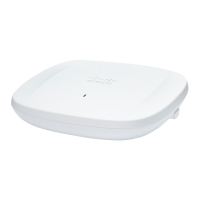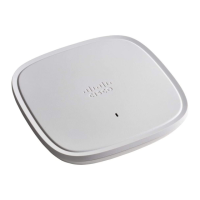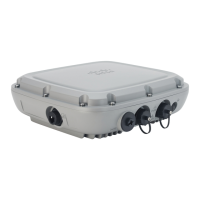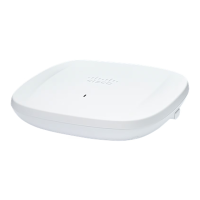CHAPTER 5
Configuring and Deploying the Access Point
This section describes how to connect the AP to a controller. For instructions on how to configure the AP,
see the relevant release's Cisco Wireless Controller Configuration Guide.
• The Controller Discovery Process, on page 21
• Deploying the Access Point on the Wireless Network, on page 22
• Checking the Access Point LEDs, on page 22
The Controller Discovery Process
To support C9136AXI AP, the controller must be running Cisco IOS-XE 17.7.1 or later release. For more
information, see the access point data sheet available on Cisco.com at: https://www.cisco.com/c/en/us/products/
collateral/wireless/catalyst-9100ax-access-points/nb-06-cat9136-access-point-ds-cte-en.html
Guidelines and Limitations
• You cannot edit or query an access point using the controller CLI if the name of the access point contains
a space.
• Make sure that the controller is set to the current time. If the controller is set to a time that has already
occurred, the access point might not join the controller because its certificate may not be valid for that
time.
The controller must discover AP before it can become an active part of the network. The AP supports the
following controller discovery processes:
• Locally stored controller IP address discovery: If the access point was previously joined to a controller,
the IP addresses of the primary, secondary, and tertiary controllers are stored in the access point's
nonvolatile memory. This process of storing controller IP addresses on an access point for later deployment
is called priming the access point. For more information about priming, see the Performing a PreInstallation
Configuration (Optional), on page 15.
• DHCP server discovery: This feature uses DHCP option 43 to provide controller IP addresses to the
access points. Cisco switches support a DHCP server option that is typically used for this capability. For
more information about DHCP option 43, see the Configuring DHCP Option 43, on page 27.
• DNS discovery: The access point can discover controllers through your domain name server (DNS). For
the access point to do so, you must configure your DNS to return controller IP addresses in response to
CISCO-CAPWAP-CONTROLLER.localdomain, where localdomain is the access point domain name.
Cisco Catalyst 9136I Series Access Point Hardware Installation Guide
21
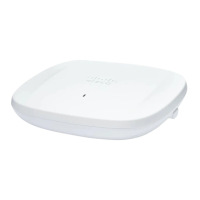
